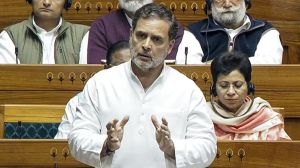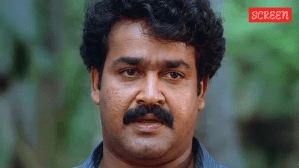The myth factory
Slumdog Millionaire will be with us forever in some avatar
The Oscars are the end of history. One night in February,questions about how a years pack of films will be thought of decades later are answered; the narratives attached to individual movies the plucky indie outsider,the high-minded drama are set in stone. Who remembers,now,that in 1974 the film that captured the essence of what it meant to feel white,working class and excluded Rocky was a small-budget no-hoper up against Taxi Driver,Network and All the Presidents Men before the Academy perplexingly fell in love with it? We now think of Sylvester Stallones franchise as an epoch-defining,all-carrying juggernaut that helped spark the Reagan Revolution,but it wasnt till the Oscar nod that that story won out against the plucky underdog one.
Thus,for us,these Oscars matter. When movies are set in what to Academy voters are foreign countries,the links between the movies content,the way it wins or doesnt,and how people are thinking about that country are strong. Consider Crouching Tiger,Hidden Dragon: its Oscar successes were because of,and then strengthened,the idea of a timeless China where propriety is more important than gain,but which is coming to get you nonetheless. Il Postino and Life is Beautiful show Italy haunted by and obsessed with its past,by the use of language to hide the pasts scars. City of God means that the first image of Brazil is of teeming favelas,of guns and desperation.
And were I French,the implications of Amelie and Chocolats success would be deeply irritating.
And this year,for the first time since 1982,Academy voters thought about India. Just as Gandhi continues to teach us our history on Doordarshan,every Independence Day and Gandhi Jayanti,while simultaneously implying that basically everything interesting in India happened before 1948,Slumdog Millionaire will be with us forever in some avatar,lighting up movie channels,providing metaphors for political commentators,subtly fixing impressions about India for a decades worth of ordinary people living beyond Indias shores. And hence,for once,the self-conscious,angry mutter might actually be justified: you looking at us? What,Mr Oscar,is all the fuss about?
By now,everyone and his blogger cousin have weighed in on the subject. Movies,like the weather,are complex subjects but about which all of us feel authorised to have an opinion. And,yes,now there is something to be explained: how opinion can apparently be so very divided between many in India and those in the rest of the world.
A clue is that a lot of that divided opinion seems,on the face of it,unconnected to the actual movie. Consider the four biggest myths,two common among those who like the movie,two among those who despise it. Myth No 1,common in reviews from small-town American newspapers: that SM is a feel-good movie. Am I the only one to whom this is inexplicable? SM includes child prostitution,begging rings,maiming and torture,and ends with the suicide-murder of one of the main characters. This isnt Billy Elliot. Yes,it ends with kids dancing on a railway platform. But if that is all it takes,it means that we desperately want a feel-good movie,not that this one really is.
The second myth: that SM is about the aspiration that animates Indias urban underclass today. It isnt: the central point is that the boy that wins millions wants to be on the show basically so that the girl thats disappeared can find him,not because its a long-held desire. Yes,the various and diverse areas of illegal or non-permanent housing we call our slums are vibrant places where entrepreneurship of one sort or another has taken root,and where people increasingly feel connected to the rest of their city. This movie is not about that. We may want it to be,but it isnt.
The third myth: this is poverty porn; it romanticises or exploits poverty for the happy,well-fed Western moviegoer. This isnt a new fear: weve used it against our best movies often enough in the past. And,as David Bordwell has pointed out,it isnt unique to India: Italians in the 1950s used it against Neorealist cinema,for example. And again,the argument is even less applicable than usual: nowhere does Anthony Mantles camera try and make squalor beautiful; if some shots are spectacular,like the aerial shot of the children running through the slum,thats not because of how theyve been treated. This is the kind of argument made by those in societies acutely nervous of how theyre viewed,jostling for place. Scandinavians dont complain that hyper-realist Dogme movies present them as a people lost in a perpetual dusk,wandering around without make-up,too gloomy for background music.
But if we fear it,well see it.
The fourth myth: Indian directors make such movies all the time. Its because this time a Westerners tried it. Really? Movies just like this one,with its frenetic camerawork combined with subdued performances? It is popular to claim that Mani Ratnam,for example,could have made this movie effortlessly. Ha. Look at what he did with Yuva: the most unbelievable Calcutta movie ever,with the most unbelievable student politics ever,and a Sunderbans of white beaches. (Manchesters Boyle tried to get to know Bombay; Madurais Ratnam didnt think it worth his while to get to know Calcutta.) But,again the fears independent of the facts: the fears that we are becoming a BPO nation,that we can strive or innovate here,but to be noticed,for credit to be given,a Western name or face will be needed.
We like it because we want it to be what it isnt. We fear it because we think it is what it isnt.
SMs tragedy is that of other Oscar-feted films before it,of Rocky,of Titanic: it is no longer about what it is about. (Particularly ironic,given that it is undoubtedly one of the simplest films to be in this position for a while.) Just as Titanic,the first true giant worldwide hit,became more about the good ship Globalisation,SM will not be the simple,beautifully-shot story they excerpted from Swarups book: it will be about the scrappy,urgent,recognisable India thats building upwards from slums,the centre of the world,free,chaotic,dynamic,the White Tiger-esque story that the world needs to hear. If they hadnt made Slumdog Millionaire,it would have been necessary to invent it.
mihir.sharmaexpressindia.com
- 01
- 02
- 03
- 04
- 05































